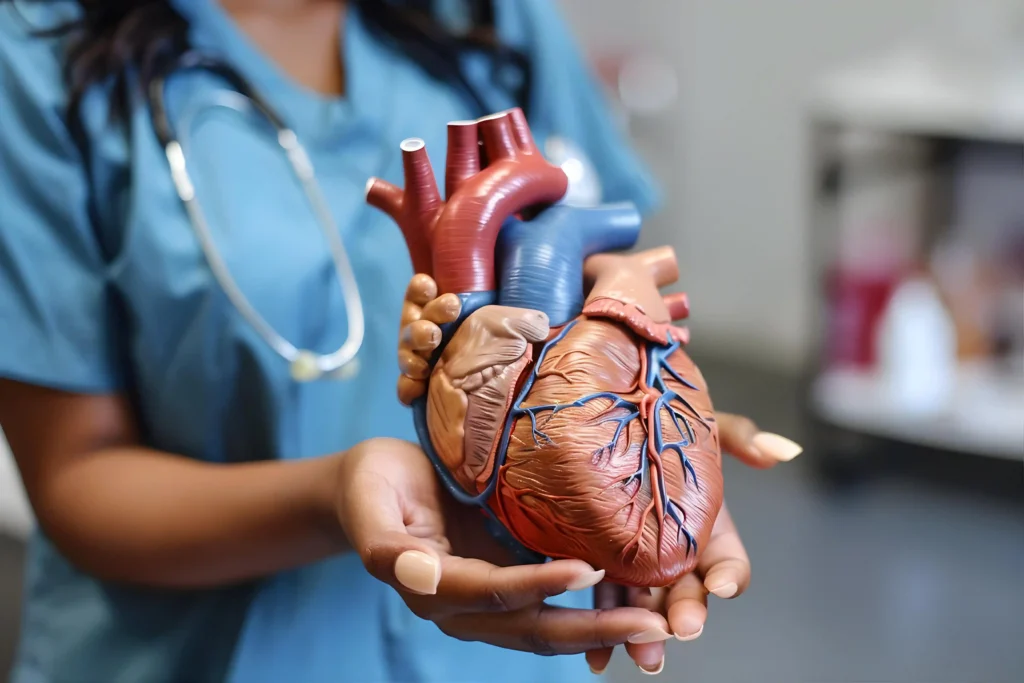Comprehending the Significance of Cardiology in Modern Healthcare Services
Cardiology plays a critical role in modern healthcare, especially as heart illness continues to be the leading source of death worldwide. Developments in diagnostics and therapy have actually changed person treatment, allowing earlier treatments and improved outcomes. The shift towards preventive cardiology encourages people to handle their wellness proactively. As technology remains to advance, the combination of cutting-edge remedies might better redefine cardiology's impact on public health and wellness, triggering a more detailed assessment of arising trends and their ramifications.
The Prevalence of Heart Problem and Its Influence On Public Health
Although cardiovascular disease continues to be the leading cause of death globally, its effect extends far past individual clients to impact public health systems and economies. The high prevalence of cardiovascular disease positions a significant pressure on health care resources, demanding boosted funding for treatment, avoidance, and rehab programs. Public health and wellness efforts have to resolve risk factors such as weight problems, cigarette smoking, and sedentary way of lives, which add significantly to the increasing occurrence of heart conditions.Moreover, the financial worry connected with heart illness is enormous, incorporating not only straight clinical expenses but likewise indirect costs related to shed productivity and early mortality. Neighborhoods face obstacles in handling these costs, frequently leading to disparities in medical care access and results. As the populace ages and lifestyle-related threats continue to rise, the necessity for efficient cardiology treatments becomes paramount. As a result, attending to heart problem is not only an issue of individual health and wellness however also a crucial public wellness top priority.
Breakthroughs in Heart Diagnostics and Imaging Techniques
Recent improvements in cardiac diagnostics and imaging techniques have revolutionized the field of cardiology, improving the capability to discover and keep an eye on heart illness. Techniques such as cardiac MRI, CT angiography, and echocardiography have ended up being significantly sophisticated, giving in-depth photos of heart structures and features. These modalities enable the early recognition of conditions like coronary artery disease, heart failure, and valvular disorders.Moreover, improvements in non-invasive diagnostics, such as wearable innovation and remote tracking devices, have encouraged patients and doctor. These devices help with real-time tracking of heart rhythms and various other crucial indicators, resulting in prompt interventions. Furthermore, artificial intelligence is being integrated right into imaging evaluation, boosting precision and effectiveness in medical diagnosis.
Innovations in Therapy Alternatives for Heart Conditions
Current advancements in cardiology have actually brought about significant technologies in therapy choices for heart disease. These consist of sophisticated medical techniques that enhance procedural end results and arising medicines that offer brand-new methods for therapy. As the field progresses, these innovations play an essential function in improving client care and outcomes.
Advanced Surgical Techniques
Advancements in medical techniques have actually changed the landscape of cardiology, supplying brand-new expect patients with heart disease. Minimally invasive treatments, such as catheter-based interventions, have actually significantly decreased healing times and hospital stays. Techniques like robotic-assisted surgery boost precision, permitting doctors to browse intricate physiological frameworks with better accuracy. Innovations in imaging innovation facilitate real-time visualization throughout procedures, enhancing end results. Transcatheter aortic shutoff substitute (TAVR) exhibits an advancement in treating aortic constriction, allowing valve replacement without open-heart surgical procedure. Additionally, hybrid strategies that combine surgical and catheter-based techniques supply customized solutions for different heart concerns. These sophisticated medical strategies not only improve person safety yet likewise broaden treatment choices, highlighting the essential function of technology in modern cardiology techniques.
Emerging Therapies and medicines
As the landscape of cardiology continues to evolve, emerging medications and treatments play a pivotal function in boosting treatment options for heart disease. Advancements such as novel anticoagulants and advanced lipid-lowering representatives have changed the monitoring of cardiovascular conditions, considerably lowering person morbidity and death. Furthermore, the advancement of genetics therapies and regenerative medication uses encouraging avenues for dealing with conditions previously considered permanent. Clinical tests are continuously disclosing the efficiency of these therapies, pressing the boundaries of conventional therapies. The assimilation of electronic health and wellness technologies assists in tailored medication, permitting for customized treatment plans based on genetic and way of life aspects. Jointly, these advancements underscore the dynamic nature of cardiology, boosting patient outcomes and redefining criteria of care in modern medical care.
The Role of Preventive Cardiology in Individual Treatment
Preventive cardiology plays an important duty in client treatment by concentrating on the recognition of threat factors that add to cardiovascular disease. With way of life alteration approaches and very early detection techniques, health care companies can effectively reduce the occurrence of cardio occasions - Cardiology care. This aggressive strategy not just enhances client end results however additionally promotes lasting health
Threat Aspect Identification
While heart diseases remain a leading root cause of morbidity and death worldwide, reliable threat aspect recognition serves as a cornerstone of preventative cardiology. Determining threat variables such as high blood pressure, family, diabetes mellitus, and hyperlipidemia background is vital for early intervention. Healthcare specialists utilize various evaluating approaches to examine these elements, enabling for tailored preventative procedures. Additionally, comprehending a person's way of living options, such as cigarette smoking and physical inactivity, even more educates danger analyses. This thorough assessment enables medical professionals to create personalized treatment plans targeted at mitigating threats. By prioritizing risk element recognition, healthcare systems can enhance patient outcomes and lower the general worry of cardiovascular conditions, eventually adding to boosted public health and wellness methods and resource allocation.
Lifestyle Modification Approaches
A plethora of studies highlights the critical function of way of living modification methods in reducing cardio condition danger. These techniques incorporate dietary adjustments, raised physical task, smoking cigarettes cessation, and weight management. By adopting a heart-healthy diet abundant in fruits, veggies, entire grains, and lean healthy proteins, people can reduce cholesterol levels and high blood pressure. Regular physical task reinforces the heart and boosts general cardio wellness. Additionally, giving up smoking greatly minimizes the threat of heart disease and enhances recuperation rates for those with existing conditions. Weight management further adds to cardiovascular health by alleviating various other risk factors such as diabetes mellitus and high blood pressure. Implementing these lifestyle changes not only promotes private well-being however likewise offers as a keystone of preventive cardiology in client care.
Early Discovery Methods
Way of life modifications considerably contribute to lowering cardio illness risks, however they are most efficient when combined with early detection techniques. Preventative cardiology highlights the value of identifying possible heart concerns before they intensify right into significant conditions. Strategies such as high blood pressure tracking, cholesterol testing, and progressed imaging innovations like echocardiograms play crucial duties in evaluating cardio health and wellness. Biomarkers and hereditary screening likewise improve the accuracy of very early detection, enabling customized preventive approaches. Normal cardiac threat analyses empower doctor to interfere proactively, possibly avoiding cardiovascular disease and strokes (Dr Garcia). By integrating these very early discovery techniques into routine treatment, individuals can take advantage of prompt way of life treatments and targeted treatments, ultimately boosting results and boosting top quality of life
Integrating Innovation Into Cardiology Practices
As developments in modern technology remain to reshape numerous areas, the assimilation of cutting-edge tools and systems into cardiology techniques has actually come to be vital for improving patient treatment and results. Telemedicine systems permit cardiologists to keep track of individuals from another location, improving accessibility to care while decreasing the problem on health care facilities. Wearable tools, such as smartwatches, allow visit this site right here constant heart price monitoring, notifying both doctors and clients to potential concerns in real-time. Furthermore, fabricated intelligence (AI) is being used to evaluate substantial amounts of cardiac data, helping in early diagnosis and customized therapy plans. Advanced imaging techniques, consisting of 3D echocardiography, enhance visualization of heart frameworks, bring about more specific interventions. Electronic wellness documents (EHRs) improve client details administration, guaranteeing that cardiologists have immediate access to essential information. Together, these technical advancements are transforming cardiology, advertising positive monitoring and boosted health results for individuals with cardiovascular conditions.
The Relevance of Client Education And Learning and Involvement
Client education and interaction play a pivotal role in the administration of cardio health. By outfitting individuals with understanding about their conditions, therapy alternatives, and way of life modifications, health care carriers empower people to take an energetic function in their care. This positive strategy can bring about enhanced adherence to prescribed medications, nutritional adjustments, and exercise programs, inevitably lowering the threat of complications.Engagement additionally fosters a strong patient-provider relationship, motivating open communication and count on. When people feel informed and involved, they are a lot more likely to voice worries and ask inquiries, which can bring about better professional end results. Furthermore, instructional sources, such as workshops or electronic platforms, can boost understanding and advertise self-management strategies. In general, prioritizing patient education and learning and involvement is essential for boosting cardiovascular health, boosting high quality of life, and lowering health care expenses related to cardio diseases.
Future Patterns in Cardiology and Their Prospective Effect

Often Asked Inquiries
What Way Of Living Changes Can Reduce Cardiovascular Disease Threat?
The present question addresses way of living adjustments that can considerably minimize heart problem risk. Cardiologist near me. Embracing a balanced diet plan, taking part in regular physical activity, keeping a healthy weight, managing stress and anxiety, and preventing tobacco can significantly improve cardio find wellness
Just How Can I Identify Very Early Indicators of Heart Problems?
Identifying early signs of heart problems entails monitoring signs and symptoms such as breast discomfort, shortness of breath, exhaustion, and irregular heartbeat. Prompt recognition of these indications can prompt essential medical examination and treatment for better end results.
What Are the Distinctions In Between Cardiologists and Heart Surgeons?
The differences in between cardiologists and cardiac cosmetic surgeons lie in their roles; cardiologists mainly detect and manage heart disease with non-invasive approaches, while heart surgeons carry out surgeries to correct architectural heart problems. Each plays an important, unique role.

Just how Usually Should I Obtain My Heart Health Checked?
The frequency of heart wellness checks differs based on specific risk aspects. Usually, grownups ought to undergo examinations every one to 2 years, while those with present problems might require even more frequent evaluations as recommended by medical care specialists.
What Function Does Genetics Play in Heart Problem Danger?
Genes considerably influences heart problem threat, with familial patterns indicating inherited problems. Particular genes can incline people to hypertension, cholesterol problems, and various other cardio troubles, highlighting the relevance of genetic testing in reviewing heart wellness. Heart disease stays the leading cause of fatality around the world, its impact expands much past specific people to impact public wellness systems and economies. Public health efforts need to attend to threat elements such as weight problems, cigarette smoking, and inactive way of lives, which contribute considerably to the increasing occurrence of heart conditions.Moreover, the financial problem linked with heart condition is enormous, including not just direct medical costs but likewise indirect expenditures related to shed efficiency and early mortality. Preventative cardiology plays a vital function in patient care by focusing on the identification of danger aspects that contribute to heart disease. Synthetic knowledge (AI) and maker discovering are enhancing diagnostics and patient tracking, making it possible for very early discovery of heart illness. The distinctions between cardiologists and heart cosmetic surgeons lie in their roles; cardiologists primarily take care of and identify heart problems via non-invasive methods, while heart doctors carry out surgical procedures to correct architectural heart concerns.